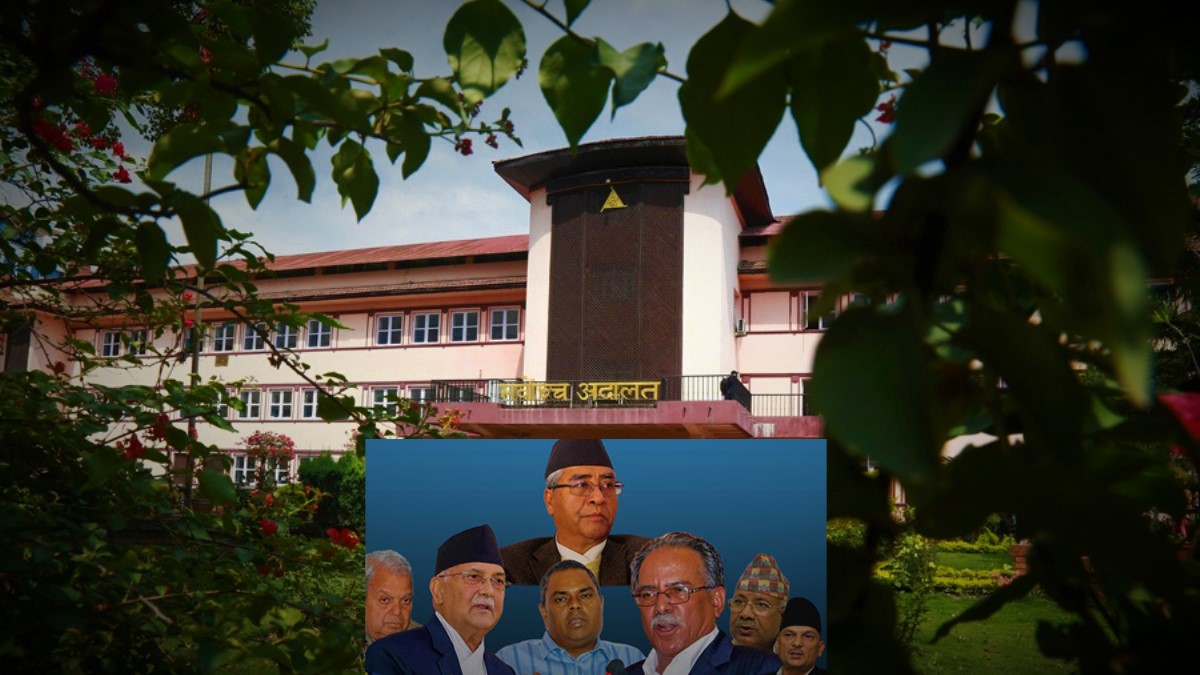
“Undermining Democracy: The Impact of Political Interference on Judicial Appointments in Nepal”

The judiciary is a crucial component of any democratic society, serving to enforce laws, protect the rights of citizens, and uphold the rule of law. Unfortunately, in Nepal, the judiciary has been facing significant challenges due to undue political pressure in the appointment of judges.
This article seeks to explore the issue of political pressure in judicial appointments in Nepal and its far-reaching consequences. To fully comprehend this issue, it is necessary to examine the historical context of the judiciary in Nepal, which has been shaped by its complex and intricate history.
The Rana regime, which ruled Nepal for over a century until 1951, had a profound impact on the judiciary, which was then re-established as an independent body in the 1950s. However, the legacy of political interference has persisted, with successive governments accused of exerting undue influence on the appointment of judges.
The article will delve into the current challenges facing the judiciary, with a particular focus on the impact of political pressure on judicial appointments. The lack of transparency in the appointment process has led to allegations of nepotism and favoritism, eroding public trust in the judiciary and raising questions about its independence and impartiality. Finally, the article will examine the efforts being made to address these challenges, such as the introduction of a new constitution in 2015 that included provisions to enhance the independence of the judiciary.
However, the implementation of these provisions has been slow, and much more needs to be done to ensure a fair and independent judiciary in Nepal.
Historical Context
Nepal’s judiciary has a complex and intricate history, shaped by its geography, culture, and politics. The judicial system has evolved over time, adapting to changing circumstances and reflecting the values and priorities of the society it serves. During the Rana regime (1846-1951), the judicial system in Nepal was feudal in nature, with judges appointed by the Rana rulers based on loyalty rather than qualifications. The judiciary was a tool of the regime, used to suppress dissent and maintain social control. After the fall of the Rana regime, Nepal underwent a significant transformation, and the establishment of an independent judiciary was a critical part of the democratization process. In 1951, the Nepali Constitution was enacted, which established the Supreme Court as the highest court of appeal in the country. Despite these efforts, the judiciary has continued to face challenges in achieving independence and impartiality. The monarchy, political parties, and influential individuals have all attempted to exert pressure on the judiciary, resulting in compromised judicial appointments and decisions. In recent years, there have been efforts to reform the judiciary in Nepal, with the aim of strengthening its independence and impartiality. The interim constitution of 2007 established the Judicial Council, which was tasked with overseeing the appointment, promotion, and discipline of judges. The historical context of the judiciary in Nepal is essential in understanding the challenges facing the system today. The legacy of feudalism, political instability, and interference in the appointment of judges has created a situation where the judiciary struggles to function independently and impartially. Achieving a fair and independent judiciary in Nepal will require sustained efforts from all stakeholders, including the government, civil society, and the media.
Current Scenario
The current scenario of the judiciary in Nepal remains a cause for concern. Political parties and influential individuals continue to use their power to influence judicial appointments. As a result, appointments are often based on political considerations rather than merit, experience, and qualifications. The appointment of judges has been a contentious issue in recent years, with allegations of nepotism, favoritism, and political interference. There have been reports of judges being appointed based on their political affiliations rather than their qualifications and experience.
Moreover, there is a lack of transparency in the appointment process, making it challenging to hold those responsible accountable. There have been instances where individuals with questionable qualifications and credentials have been appointed to senior positions in the judiciary, raising serious questions about the integrity of the system. The Judicial Council, which is responsible for recommending appointments, has come under criticism for its lack of transparency and accountability. The COVID-19 pandemic has also had an impact on the judiciary in Nepal. The closure of courts and the suspension of judicial proceedings have led to a backlog of cases, which has further strained the already overstretched judicial system. The pandemic has highlighted the need for a more efficient and responsive judiciary that can adapt to the changing circumstances.
Consequences of Political Pressure on Judiciary Appointments
The consequences of political pressure on judiciary appointments are far-reaching and severe. When judges are appointed based on political considerations rather than merit, it undermines the independence, impartiality, and integrity of the judiciary. It also hinders the judiciary’s ability to function effectively, resulting in delayed justice and eroding citizens’ trust in the justice system.
Political pressure on judiciary appointments also has a significant impact on human rights. When judges are not appointed based on their qualifications and experience, it results in poor judgments and compromised justice. This is particularly concerning in cases where human rights violations are involved.
Possible Solutions
To address the issue of political pressure in judiciary appointments, several potential solutions can be explored. The first step is to ensure transparency and accountability in the appointment process. The appointment process should be based on merit, qualifications, and experience, with clear criteria and procedures that are accessible to the public.
Moreover, there is a need to establish an independent commission to oversee judicial appointments. The commission should consist of individuals with a strong commitment to the rule of law and human rights, and their appointments should be made on a transparent and merit-based process. This commission should be responsible for overseeing the appointment of judges, ensuring transparency and accountability, and safeguarding the independence and impartiality of the judiciary.
The role of civil society and media is also essential in addressing the issue of political pressure in judicial appointments. Civil society organizations should play an active role in monitoring the appointment process, raising public awareness, and advocating for fair and impartial appointments. The media should also play a vital role in exposing instances of political interference in the judiciary and raising public awareness of the issue.
Conclusion
The undue political pressure on judiciary appointments in Nepal has deeply impacted the independence and impartiality of the judiciary. Although there have been efforts to reform the judiciary, the legacy of political interference and a lack of transparency in the appointment process continue to pose significant challenges. Achieving a fair and independent judiciary in Nepal will require sustained efforts from all stakeholders, including the government, civil society, and the media. Addressing issues of corruption, inefficiency, and a lack of resources through judicial reform is also crucial. However, with growing awareness and commitment to change, there is hope for a judiciary that truly serves the needs of the people and upholds the rule of law in Nepal.













Comments